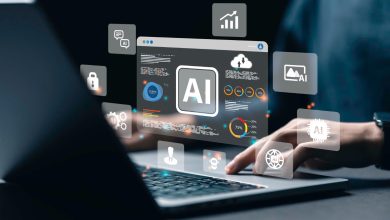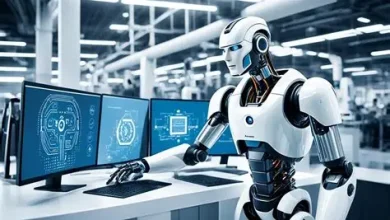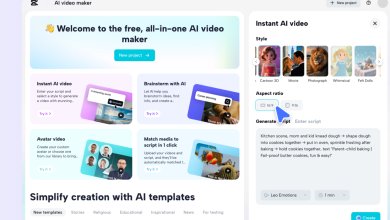
I have worked in the finance industry for a very long time. When I started my career over 20 years ago, I was creating IRS payroll forms for the IRS using a typewriter. Yes, you read that correctly, a typewriter. The forms were purchased at Office Depot and required carbon copies in which the first page was sent to the Social Security Administration, the second page was given to the employee and the third page was kept by the employer.
If I made a mistake of any sort, backspace was not an option, I just had to throw the entire page away and start over. While greatly increasing my accuracy levels, it took a very long time to create quarterly and yearly forms for the IRS. This, along with the fact that I was an avid follower of science fiction, made me yearn for a future for the financial world where office systems were much more automated.
Throughout my career, I have witnessed the rise of online banking, cloud-based accounting, direct deposit payroll and IRS forms, automated accounts payables and receivables, GPS mileage trackers, and many other incredibly useful functions. Many of my colleagues have been leery to adopt new technologies preferring the “old ways” as that is what they were taught and that is what they are more comfortable with. I have always had a desire to be on the bleeding edge of technology and my firm has not only adopted new technologies with open arms but has sought partnerships with which we have wanted to help build accounting and tax technology for the future.
I truly believe that AI is the next frontier for the financial industry. Accountants spend hundreds of hours each month doing routine manual tasks such as downloading banking transactions, categorizing them and reconciling them with bank statements. This is the backbone of the accounting industry, and this could be done with AI. Intuit, specifically Quickbooks Online, has rolled out an AI assistant for downloading and categorizing transactions, but honestly, it isn’t very good yet.
The guesses that it’s AI is making is often wrong and its justifications for its guesses are not logical. This leaves quite an opportunity for companies that are wanting to step in and create something better. Once these manual functions are done well by AI, an accountant can then expand their practice exponentially. AI would not replace the human’s job but give them a tool to allow them to essentially use their knowledge to help many more companies than they could on their own without the AI.
Where once they could possibly manage five clients in a week, with a powerful AI tool they could manage 20 clients in a week. This would shift the accountants’ role from doing the manual entry themselves, to managing the AI and freeing up their time for crafting financial reports, budgeting and other higher value services for their clients. Essentially letting the AI be their “bookkeeper” and the accountant fill the role of a controller or CFO.
In the tax world, this could work in a similar way. Most firms already have a portal where clients upload documents. Once the documents are uploaded, a human then has to download the document and manually enter that information into the tax program. In my firm, once the tax return has been created, we then have another human review the first human’s work to look for potential tax savings or errors before sending it out to the clients.
The software of the future will take the information that is uploaded to the portal and create the tax form for us, then our human team will review it as they do already, thus cutting out the manual data entry portion. This would speed up our processes and cut our expenses as a firm, making our firm much more scalable in the long run. I would still need my human team to review the work of the AI before it gets sent out to the client.
I also volunteer with the IRS in the Taxpayer Advocacy Panel. This is a program that was started during the Clinton administration to be the voice of the taxpayers and look for systemic problems within the IRS and help create a more efficient IRS. The specific committee that I am part of is the Communications Committee. The purpose of this committee is to look for ways for the IRS to communicate more effectively with the taxpayers. https://www.improveirs.org/
IRS communications have been a problem for a long time. It has become worse recently as their personnel have been cut significantly, their funding has been cut, and their in-person offices are being closed down. Self-service options using automation and AI is one of the concepts that we have been discussing for alleviating some of these issues for the taxpayers.
I know that many accountants and people in general have fears related to AI, but it is our future whether or not we like it. I believe the firms that embrace it will thrive, while the firms that resist it will eventually die. The choice will be ours to make.




